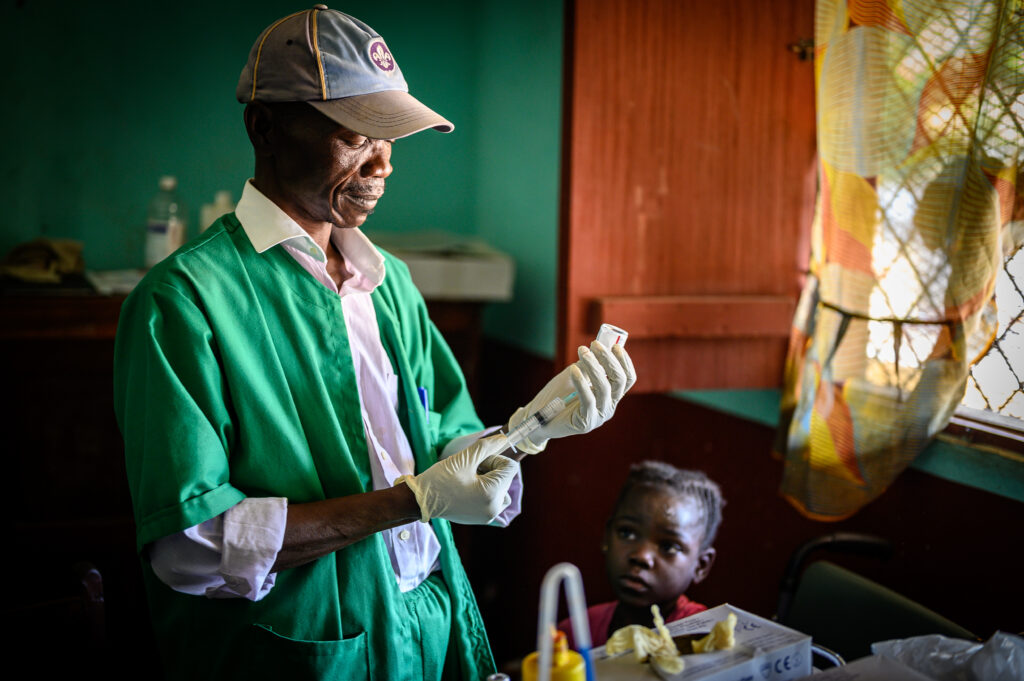In response to the concerns expressed by the Dutch public health service that the Netherlands is “insufficiently prepared” for future pandemics, the government reserved a promising €300 million yearly budget to improve epidemic preparedness. Today we explore what the Netherlands can do to accelerate the end of COVID-19 while preparing for future pandemics.

Frederik Kristensen, the deputy CEO of the Coalition for Epidemic Preparedness Innovations (CEPI), spoke with Cordaid to explore how CEPI’s work can benefit epidemic preparedness in the Netherlands and the rest of the world.
Cordaid partners with CEPI, a global partnership investing in vaccine development, to mobilise support for epidemic preparedness; a central element to ensure healthy lives for all.
The Netherlands can prepare better for pandemics
According to a recent survey conducted by Validators in the Netherlands, 70% of the Dutch population believes that the government should invest more in vaccine research in preparation for future pandemics.
Cordaid advocates that the Netherlands should allocate €25 million per year (or 8% of the yearly epidemic preparedness budget) to CEPI, whose work ensures that the world invests in the vaccines we need to protect ourselves.
“The world is severely unprepared to face any kind of disease with an epidemic potential.”
Back in 2020, to many, a global pandemic was a scenario that only seemed possible in movies. But CEPI already had ongoing research with Oxford University on a coronavirus vaccine for another disease, called MERS, which emerged in the Middle East in 2013. The step-ahead that CEPI had on coronaviruses allowed it to quickly adapt existing research to support vaccine development with AstraZeneca and Moderna, amongst other vaccine manufacturers, which turned out to save millions of lives across the globe.
A strong global coalition for healthier lives for all
“The world is severely unprepared to face any kind of disease with an epidemic potential”, says Kristensen. “Learning from Ebola, there was a need for public-private partnerships to develop vaccines and prepare against the diseases that, according to the World Health Organisation, can potentially turn into epidemics. In this coalition, governments, private companies, philanthropies and civil society organisations can come together and work towards having those vaccines ready for when a new viral outbreak emerges.”
“It is 100% certain that pandemics will be a part of our future. The uncertainties are: when, how often and how severe.”
According to Kristensen, epidemic and pandemic preparedness is like any part of a country’s agenda for national security. “The Dutch government needs to make sure that they strengthen their own national capabilities and competencies to respond to viral outbreaks. But they should also support international collaboration. We need a coalition of willing partners. Only together we can make sure that the world is better prepared for the future.”
Now is the time to act
Why invest now to prepare for a pandemic which hasn’t occurred yet? “Because of an increasing population density, environmental changes, and our growing capacity to travel across the globe, pandemics will happen again.”
In March 2022, CEPI holds its Global Pandemic Preparedness Summit in London to call on governments, philanthropies and private sector organisations to pledge towards their $3.5 billion plan. This plan aims to achieve three game-changing goals:
- to prepare against the twenty priority diseases with epidemic potential and to develop a variant-proof COVID-19 vaccine;
- to transform our response to pandemics by developing a library of vaccines prototypes and reducing the vaccine development timeline against new life-threatening viruses to just 100 days;
- to connect global collaboration and enhance global preparedness.
Global pandemics cause tremendous harm. COVID-19 not only directly affected people’s health and lives everywhere, but it also reversed decades of efforts and investments to achieve universal health coverage and safeguard human rights. Cordaid urges the Netherlands to contribute to global pandemic preparedness by supporting CEPI’s ambitious plan.
Kristensen concludes: “The essential Dutch support for CEPI of €25 million per year over the next five years would create a win-win situation, for both global preparedness and for the Netherlands.”